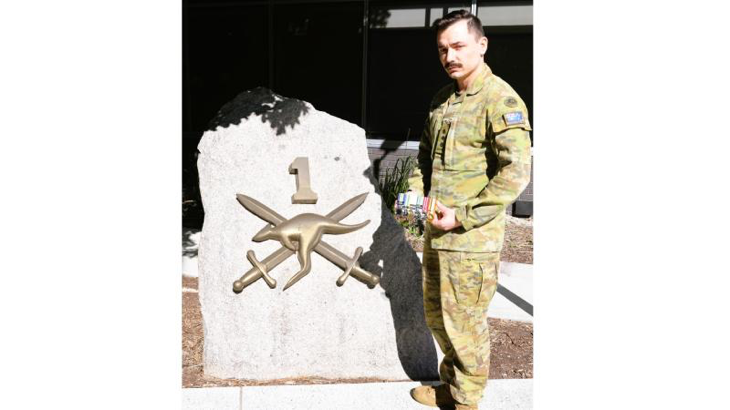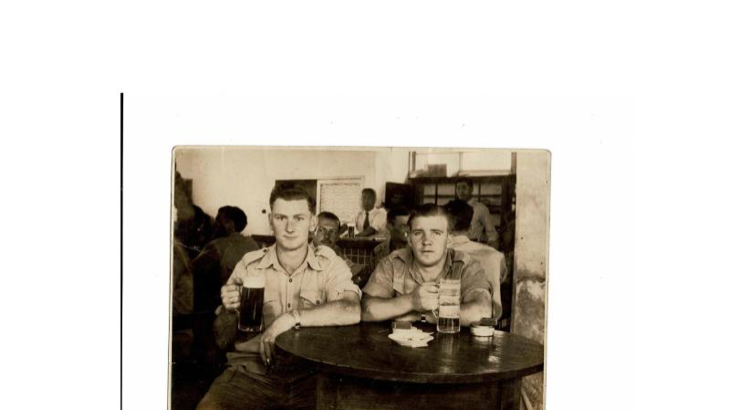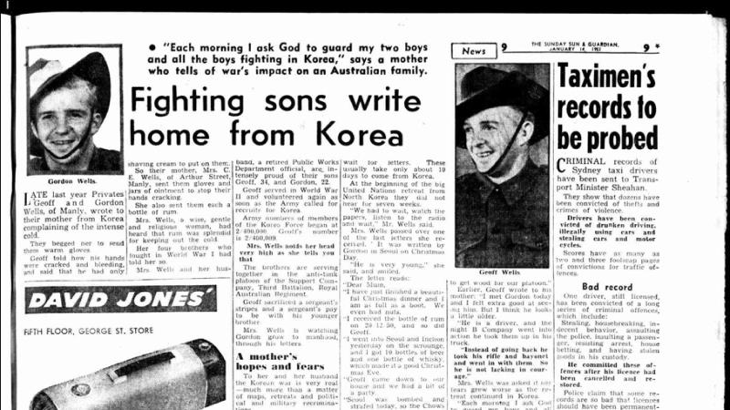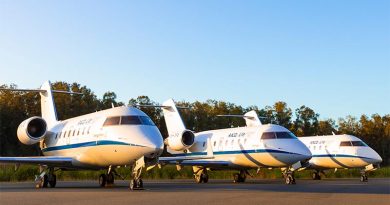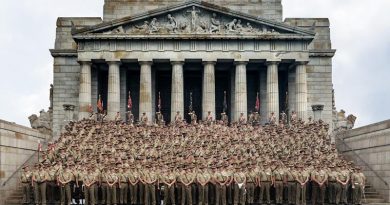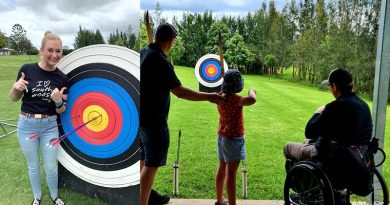Exercise continues support of South Korea

Members of Headquarters 1st (Australian) Division travelled to South Korea in August for Exercise Ulchi Freedom Shield for the next chapter in a story that began 70 years ago.
CAPTION: Army Captain Blake Parbery holds his grandfather Gordon Wells’ service medals, outside Headquarters 1st (Australian) Division, Gallipoli Barracks, Enoggera, Queensland. Story and photo by Captain Peter Nugent.
Australia was one of the first countries to respond when the Korean War started in June 1950, with Australian troops deployed to repel the Communist threat from the north.
Among those who answered that call were brothers Privates Geoff Wells and Gordon Wells, from the Sydney suburb of Manly.
World War 2 veteran Geoff, 34 at the time, was one of the first to volunteer. He and his 22-year-old brother served together in the 3rd Battalion, the Royal Australian Regiment (3RAR).
CAPTION: Private Gordon Wells and a mate share a drink in a bar during their deployment to South Korea during the Korean War.
The brothers took part in what is considered the most decisive engagement of the Korean conflict, the Battle of Kapyong (April 23-24, 1951), when Australian, Canadian and US troops halted the advance of a Chinese thrust towards Seoul.
Thirty-two Australians were killed and 53 wounded, stalling the Chinese advance and preventing Seoul falling into enemy hands.
CAPTION: Newspaper article, ‘The Sunday Sun and Guardian’ January 14, 1951, features an interview with the mother of Privates Geoff and Gordon Wells.
Earlier this year, Captain Blake Parbery, of Headquarters 1st (Australian) Division, stood on a hill overlooking the Kapyong River valley where his grandfather, great uncle and their mates overcame the odds to stop the Chinese advance.
“Seeing the fighting positions and dug-ins of the Australians still makes it hard to comprehend the conditions they would have faced,” Captain Parbery said.
“Fighting would have been difficult. The vegetation was dense and the features of the Australian positions were steep.”
Captain Parbery said the wartime roles of his grandfather and great uncle were a source of family pride.
“I never got to reflect on my grandfather’s or great uncle’s ADF service with them, as they passed when I was still young, however, I am extremely proud of my family’s heritage,” he said.
“As I got older, I was able to learn more about their service and the significance of their time within the Army.
“I think their service was definitely a contributing factor in choosing to join the ADF. It is a source of pride to continue that legacy of service within the Army.”
Since joining the Army, Captain Parbery has been keen to find out more about the role his relatives played in the Korean War.
“Any information I can find out about their time is always important to me,” Captain Parbery said.
“I have trawled through the 3RAR war diaries and read numerous books. It would be great to have the letters they wrote home but unfortunately they have been lost.”
Exercise Ulchi Freedom Shield is a defensive command-post exercise enhancing the readiness of South Korea, the US and other United Nations Command member states to uphold peace and stability on the Korean Peninsula.
.
.

.
.

